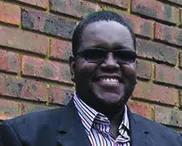How has worship music changed over time? A Christian researcher, Asa Childless (pictured), says his research shows the most significant change is that we’re now more centred on ourselves in our singing.
‘The most significant change I noticed … is the rise of individualism,’ he says. ‘This is marked by a drastic increase in the percentage of singular first-person pronouns (me, myself and I) over plural ones (we, our and us). Whilst 67% of Isaac Watts’ first-person pronouns are singular, this steadily rises to 93% by the time we reach Elevation Worship.’ But Asa adds: ‘There is another side to this story. When Stewart Townend (1963–present) was put to the same tests, his results were closer to Watts and Newton than the worship groups in each case. Rather than writing off an entire era, let us sing God-centred praises regardless of when our songs were written.’
The survey included Isaac Watts (1674–1748), John Newton (1725–1807), Hillsong Worship (1983–present), Bethel Music (2001–present) and Elevation Worship (2007–present).







